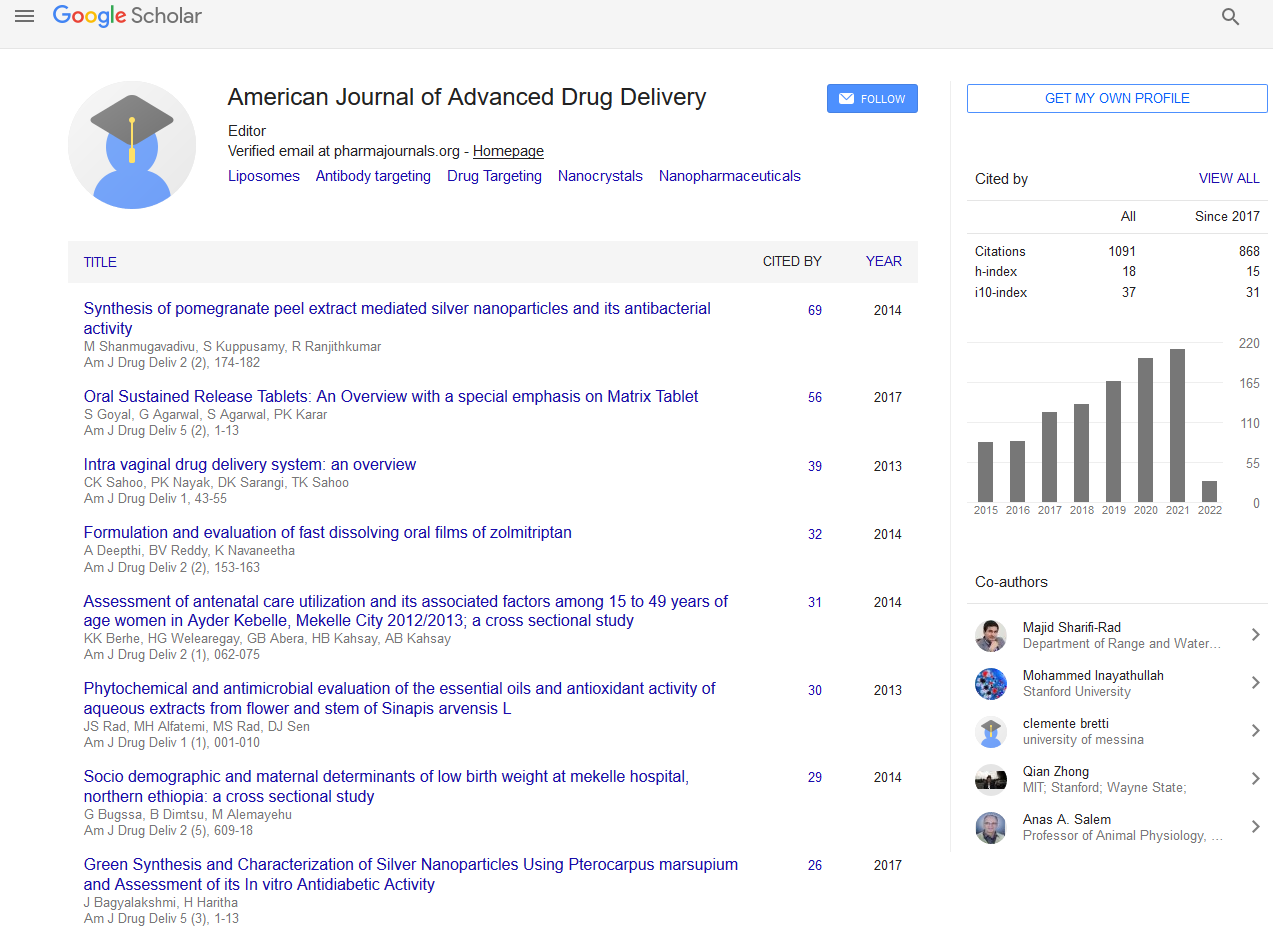Commentary Article - (2024) Volume 12, Issue 4
In Vitro Drug Delivery: A Cornerstone of Modern Therapeutics
Tarun Garg*
Department of Chemical Engineering, University of Birmingham, UK
*Correspondence:
Tarun Garg,
Department of Chemical Engineering, University of Birmingham,
UK,
Email:
Received: 02-Dec-2024, Manuscript No. IPAAD-25-22418;
Editor assigned: 04-Dec-2024, Pre QC No. IPAAD-25-22418;
Reviewed: 18-Dec-2024, QC No. IPAAD-25-22418;
Revised: 23-Dec-2024, Manuscript No. IPAAD-25-22418;
Published:
30-Dec-2024, DOI: 110.36648/2321-547X.12.4.38
Description
In vitro drug delivery systems are vital tools in modern biomedical research, offering controlled environments to evaluate the efficacy and safety of therapeutic agents. By mimicking physiological conditions outside a living organism, these systems provide a cost-effective and ethical platform for drug testing, reducing reliance on in vivo studies and accelerating drug development pipelines. This article explores the principles, applications, and advancements in in vitro drug delivery systems, highlighting their impact on personalized medicine and therapeutic innovation. In vitro drug delivery involves the use of laboratory models to study how drugs interact with cells, tissues, or biomimetic materials. These systems are designed to replicate the complex biological environments encountered in vivo, including factors like pH, temperature, and enzymatic activity. Key elements of in vitro drug delivery include. The ability to regulate the rate and duration of drug release is crucial. Techniques such as diffusionbased, osmosis-driven, and stimuli-responsive systems ensure precise drug delivery. Materials such as hydrogels, liposomes, and polymeric nanoparticles are commonly used due to their compatibility with biological systems. This approach is particularly impactful in oncology, where tumor heterogeneity necessitates tailored therapeutic strategies. Organoid models derived from patient tissues have revolutionized personalized drug screening, enabling the identification of effective treatments for individual patients. Ethical and regulatory constraints have increased the demand for alternatives to animal testing. In vitro systems provide a reliable platform for assessing the toxicity of drugs and chemicals, ensuring safety while adhering to the principles of the 3Rs (Replacement, Reduction, Refinement). The field of in vitro drug delivery is evolving rapidly, driven by advancements in materials science, microfluidics, and biotechnology. Some notable innovations include: Microfluidic platforms, or lab-on-achip devices, enable the precise control of fluids at the microscale. These systems simulate dynamic physiological conditions, such as blood flow and nutrient gradients, enhancing the realism of in vitro models. For example, lung-on-chip and liver-on-chip technologies are used to study respiratory and hepatic drug responses. 3D bioprinting has revolutionized the fabrication of complex tissue models. By layering bioinks composed of cells and biomaterials, researchers can create structures that closely resemble native tissues. These models are invaluable for studying drug penetration, distribution, and efficacy. Advanced in vitro models now incorporate stimuli-responsive materials that release drugs in response to specific triggers, such as pH changes, temperature shifts, or enzymatic activity. These systems provide insights into the behavior of smart therapeutics under simulated physiological conditions. Automated imaging and analysis tools have enhanced the throughput and accuracy of in vitro studies. High-content imaging systems allow real-time monitoring of cellular responses, offering detailed insights into drug mechanisms. Despite significant progress, in vitro drug delivery systems face challenges.
Conclusion
In vitro drug delivery systems are indispensable in modern therapeutics, offering a versatile and ethical platform for drug discovery and development. By enabling precise control over experimental conditions and reducing reliance on animal testing, these systems accelerate the path to safe and effective treatments. As technology continues to advance, in vitro drug delivery will play an increasingly critical role in shaping the future of personalized medicine and innovative therapeutics.
Acknowledgement
None.
Conflict Of Interest
The authorâ??s declared that they have no conflict of interest.
Citation: Garg T (2024) In Vitro Drug Delivery: A Cornerstone of Modern Therapeutics. Am J Adv Drug Deliv. 12:38
Copyright: © 2024 Garg T. This is an open-access article distributed under the terms of the Creative Commons Attribution Li�cense, which permits unrestricted use, distribution, and reproduction in any medium, provided the original author and source
are credited

